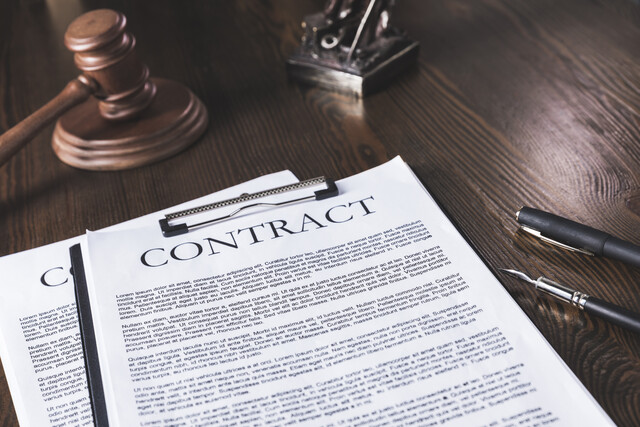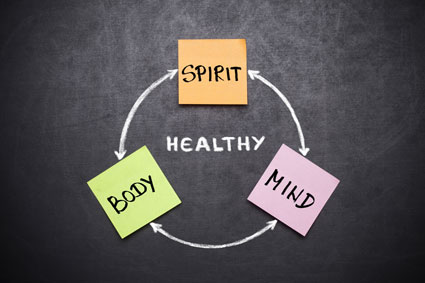When you hear the words, "Personal Assistant" (also known as a PA), what immediately comes to mind? Most of us think of a celebrity personal assistant, someone who is the "right hand" of a celebrity, living a glamorous life thanks to their close relationship with their famous boss.
While there are glamorous parts to such a career, there are several difficult and challenging aspects too. In addition, celebrities are not the only people who need and hire personal assistants.
What exactly is a personal assistant? What are their typical duties? What does it take to be a personal assistant? How does one break into the career?
What Is a Personal Assistant?
Often, the terms "executive assistant" and "personal assistant" are used interchangeably. According to personal assistants working in the field, there are some key differences
First, let's define "executive assistant" (sometimes called "executive secretary"). According to Merriam Webster online dictionary, an executive assistant is "a person whose job is to support an executive, group, department, or organization, especially by handling administrative tasks (such as data entry, correspondence, filing, and scheduling appointments)."
While a personal assistant may perform some, or many, of the duties of an executive assistant, they are often responsible for some (or all) household management, as well. They work closely with their employer, and are expected to keep everything on track (and prepared!) for their boss. Often, PA's will work in their employer's home and interact with the employer's family.
Career Origins
While there is no solid data on the origins of personal assistant careers, it's probably safe to say assistants have been around as long as wealthy, important people have. Can you imagine kings, queens, and wealthy merchants of the past making all their own appointments?
There will always be busy, famous, and wealthy people needing a "right hand" helper, so it's a safe bet personal assistants will always be in demand.
The Personal Assistant Career - Then and Now
Despite the fact most personal or administrative assistants or secretaries today are women, secretarial roles were traditionally taken by men. Even into the 20th century, positions such as Secretary of State were held only by men.
Prior to World War II, women did not have a substantial presence in the workforce. Women who did work were primarily minorities and/or from the lower classes. Many in society thought women should not work at all! Some believed no woman of middle class or higher should work under any circumstances; others thought jobs should be left to men who needed them.
Involvement in World War II meant the men going off to war, which left an enormous amount of jobs vacant. It became necessary for women to step in and take over. And step in they did! Becoming a working woman, particularly in the United States, became a celebrated show of patriotism, as well as a way to meet expenses. Many were involved working in factories manufacturing products directly related to the war effort. Even women who were previously opposed to working (including those who could have benefited from working outside the home) began to change their opinions about women's place in the workforce.
When the war ended and the soldiers returned home, women were pushed out of the jobs they'd held while the men were in battle. Despite this, women had embraced being part of the workforce and continued to work outside the home. Women currently comprise 47 percent of the labor force in the United States and are expected to account for an increase in labor force growth of 51 percent from 2008 to 2018. The largest percentage work in professional or management positions. Personal assistants definitely fall into the professional category.
Who Hires Personal Assistants?
Even though Hollywood celebrities are typically the first type of client that comes to mind, anybody with a great deal of money who needs another set of hands can be a potential employer for a PA. In the entertainment industry alone, there are a vast number of individuals in a variety of careers needing PAs. Aside from the "movie stars" of the world, potential employers include:
-
Directors
-
Screenwriters
-
Best-selling authors
-
Business entrepreneurs
-
Professional musicians
-
Producers in film, television, or music
-
Motivational speakers
-
High-end club or restaurant owners
-
Music promoters
-
Casino owners
-
Professional models
-
Professional athletes
-
Artists
-
Hollywood career managers and agents
-
Casting agents
-
Politicians
-
High-profile scientists and educators (Think: Michio Kaku or Stephen Hawking)
-
People from "old" money
-
High-profile corporate CEOs
This is just a short list. The possibilities are practically endless!
A Few Brief Facts About the Personal Assistant Career
The career field of personal assisting has been, and still is, female-dominated. While that is changing, the change is slow.
A personal assistant needs the ability to put their personal feelings aside when dealing with a difficult and demanding boss or their associates. The typical lifestyle of most people who hire personal assistants can be very "out of touch" with more "regular" lifestyles of the majority of people, which is why their demands and/or behavior may sometimes seem irrational to outsiders. (And sometimes, it just is irrational behavior!) To add to the mix, high-profile individuals usually have high-profile friends, who also have "quirks" which must be tolerated and catered to. You can't tell the boss' best friend to go jump in the lake, no matter how much of a jerk he's being.
You may also be asked to do unsavory things. A personal assistant's duties can include just about any task one might expect to encounter in normal daily life. Sometimes, this means doing a load of your boss' laundry, or taking their car to be cleaned and detailed at the last minute. You may also be asked to clean up after a food spill, do time-dependent chores when other personnel are not available, or clean up something odorous. You may even be called upon late at night to drive your boss home from a bar (if he throws up in the vehicle, chances are you'll be cleaning that up, too!). Remember, your likes and dislikes are of no concern to your employer. If it needs to be done, it's probably up to the PA to ensure it happens.
Given all this, stress management is very important for a personal assistant. PAs interact with individuals of all temperaments; as mentioned before, this may include difficult or rude colleagues of your employer. Despite any arrogance or rudeness on their part, you must be able to communicate with such people, regardless of their demeanor. This does not mean you need to be a "punching bag" for everyone associated with your employer (including the employer!), but you need to know when to "let it slide" (i.e. most of the time), or appropriately curtail truly inappropriate behavior.
Since one of the keys to being an excellent personal assistant is the ability to be inconspicuous, yet ever-present, you will essentially be the "low one" on the totem pole � always. Even though there is the potential to make a great deal of money in this career, it is not guaranteed. Some employers pay only minimum wage, while others reward excellence with appropriate pay and perks. You'll have to "start small" in this career and work your way up to the "big leagues" of celebrities or important business people.
Also, do not expect to launch your own acting career or clothing line off your association with a famous person. Celebrities really don't want to lose quality assistants, so if your potential employer knows you have such an agenda, you might not get the job.
So Why Would Anyone Want This Job?!
Right about now, this is possibly your biggest question. Don't be discouraged; there are some serious perks to being a personal assistant.
For one thing, when you have to travel with your boss, you can almost guarantee you'll be going first class and staying in a four- or five-star hotel. Accompanying your employer to fancy restaurants or Broadway plays can also be a perk. (This can be true for both celebrity clients and business clients, such as CEOs or wealthy entrepreneurs, as well.) Celebrities receive amazing gift baskets each time they attend an event, such as an awards ceremony; often they give much, or all, of the basket to their PAs. Celebrities also receive designer items for free, which they sometimes pass on, as well. Not to mention when your wealthy boss decides to redecorate � often, their trusted personal assistants get first choice of any home furnishings they plan on parting with.
Despite the usual "invisibility" of the position, PAs sometimes accompany their bosses to high-profile events. This includes parties! Some photos of celebrities at important events show their top PAs nearby.
You may also receive "surprise" perks, such as tickets to a sold-out show, clothing, jewelry, vacation trips, or other gifts. While some employers pay low wages and think of their PA as just another typical staff person, others are quite generous and become close with their PAs, even forming a friendship, as well as a working relationship, with their assistant.
A personal assistant is also in touch with a level of luxury and a world most people never see - thanks to the status of their employer, a PA gets to be a part of that luxurious world. This can involve meeting famous and/or influential people, "rubbing elbows" with celebrities (even if your boss isn't one), being privy to gossip and information others cannot imagine (and can never find out from you!), seeing photographs the general public will never see (like private photos of your celeb boss and his wife on vacation with their famous friends), traveling in style to places most people can only dream of, window-shopping at exclusive stores (and if your boss pays well, buying things too), going to glamorous dinner parties, accompanying your boss on private shopping trips to top designers' showrooms or fashion shows, and eating amazing food at high-end restaurants. And that's just the start!
If your job involves working in the individual's home (and this occurs with more than just celebrity clients), chances are it's a lovely home with a housekeeper. A personal assistant's regular daily tasks don't typically include cleaning chores, but, as mentioned previously, situations do occasionally arise where the PA is stuck doing "dirty work." Most of the time, however, you'll be tending to other duties and able to enjoy the atmosphere.
You may also be loaned a specific vehicle to drive during your workday; depending on the details of your position, you may be allowed to take the vehicle home with you. Again, the vehicle will likely be a luxury model. After all, who wouldn't want to drive a fabulous car without worrying about payments or insurance?
When your employer goes on vacation and doesn't need you to travel with them, the PA is the likely choice for house-sitter. Of course, this means you're responsible for the safety of their home, so holding huge parties is definitely not advised. But imagine having an incredible, luxurious home all to yourself. Many employers will allow their PA to have guests while house-sitting, as long as they are trustworthy (always check with your employer prior to inviting guests to their home in their absence).
More Ups and Downs of Being a PA
As mentioned previously, a personal assistant must be ready to drop everything should an emergency arise. Even if the PA thinks their boss's request is ridiculous or impossible, the deed must be carried out and the "bad news" delivered if the desire cannot be fulfilled.
Other requests are merely inconvenient. For example, if your boss says she needs Chinese food at 2 a.m. in order to finish an important project, a good PA goes out and gets Chinese food at 2 a.m., which may mean a trip to the 24-hour market to purchase ingredients and make it in the boss' kitchen. Loyalty and willingness to "go the extra mile" are often rewarded.
Your boss may be grouchy, behave irrationally, or lose their temper with you for no good reason. If you cannot weather such experiences, chances are you won't be in the PA career for long. Bursting into tears or throwing a fit is not something a boss wants from his or her PA.
Another consideration for potential PAs is health. Since a personal assistant is heavily relied upon, there is no time for illness (especially chronic illness) as a PA. Additionally, physical limitations can hinder one's ability to perform all the duties required. If health is a concern, you may be a better fit for an administrative assistant career.
Coming in second means sometimes your plans will need to be canceled if you're needed immediately. It also means long hours; 10 hours a day is not unusual, nor is working six days a week. You may be asked to travel, and you must be able to work quickly, but effectively.
It also behooves you to remain aware and informed regarding your boss' profession. If your boss owns a company, who are his biggest competitors? If she's a celebrity up for a big role, who else is in the running? What are the latest and most helpful phone apps or programs you and/or your employer can you utilize? (Remember, technology can be a personal assistant's best friend!)
As a personal assistant, your day will usually begin early, perhaps much earlier than your boss's, and will likely end after your employer has completed his or her day. It helps to be healthy and have stamina to cope with the long hours. We mentioned health before, but stamina is also extremely important. If you're a natural couch potato, you may find a personal assistant career requires too much activity. If too much input overwhelms you, this is definitely not a good career choice.
If you aren't recoiling in horror or sobbing uncontrollably after reading the above, you just might be a good candidate for the career of personal assistant.
























